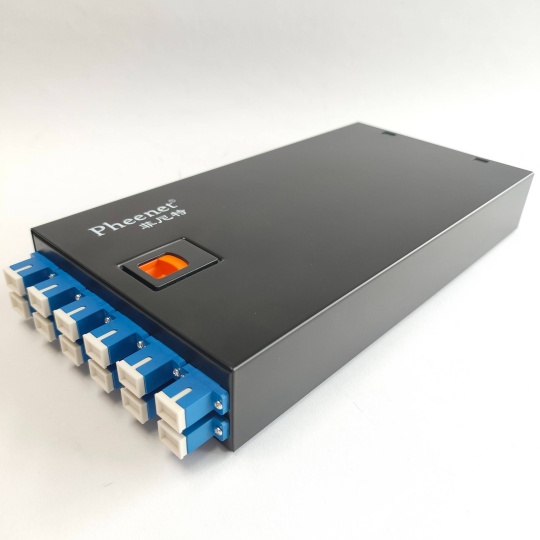Key Characteristics of Industrial Cable Assemblies for Industrial Cam...
Industrial cameras serve as the “visual core” of modern industrial automation, powering critical tasks like precision inspection, robotic guidance, and quality control. Yet their high-resolution imaging and real-time data transmission depend entirely on a foundational component: industrial cable assemblies. Unlike consumer-grade cables, those tailored for industrial cameras must overcome harsh factory conditions and deliver uncompromised performance. Below are the core characteristics that define reliable industrial cable assemblies for this application, designed to address the practical needs of engineers, procurement teams, and automation specialists.
1. Exceptional Signal Integrity for Uninterrupted Data Flow
Industrial cameras—especially 4K/8K high-resolution models or those using GigE Vision/CoaXPress interfaces—transmit massive volumes of image data (up to 10Gbps for GigE Vision 2.0). Poor signal quality leads to blurred images, frame drops, or data loss, directly disrupting automation workflows.
- Anti-interference design: Most high-performance models use double shielding (braided copper + aluminum foil) to block electromagnetic interference (EMI) from nearby motors, inverters, or high-voltage equipment—common in factories.
- Impedance matching: Strictly calibrated to 100Ω (for differential signals) or 75Ω (for CoaXPress), preventing signal reflection and attenuation over distances (up to 100m for GigE Vision without repeaters).
- Low signal delay: Uses high-purity copper conductors (99.99% oxygen-free copper) to minimize resistance, ensuring real-time data sync between cameras and control systems.
2. Rugged Environmental Tolerance for Harsh Factory Settings
Industrial environments expose cables to extreme temperatures, moisture, dust, chemicals, and mechanical impact—conditions consumer cables cannot withstand.
- Wide temperature range: Operates reliably from -40℃ (for cold storage or outdoor applications) to 85℃ (for high-temperature zones like metal casting), with specialized variants enduring up to 125℃.
- Waterproof and dustproof: Complies with IP67/IP68 ratings, allowing use in washdown environments (e.g., food processing plants) or dusty workshops (e.g., cement factories).
- Chemical resistance: Jackets made of TPE (Thermoplastic Elastomer) or PUR (Polyurethane) resist oils, solvents, and cleaning agents common in manufacturing.
- Shock and vibration resistance: Meets IEC 60068 standards, with reinforced internal structures to survive mechanical stress from robotic arms or moving machinery.
3. High Mechanical Strength for Long-Term Durability
Industrial cables are often routed through tight spaces, bent repeatedly (e.g., on robotic arms), or exposed to friction—demanding exceptional mechanical resilience.
- Extended flex life: Supports up to 10 million bending cycles (tested per IEC 60811), critical for applications with continuous motion (e.g., automotive assembly lines).
- Abrasion resistance: Thick, wear-resistant jackets (PUR is ideal) prevent damage from rubbing against metal surfaces or conveyor belts.
- Tensile and crush resistance: Reinforced with aramid fibers (e.g., Kevlar) or steel strands to withstand pulling forces (up to 500N) or accidental crushing from equipment.
4. Broad Compatibility with Industrial Camera Interfaces
Industrial cameras use diverse interfaces, and cables must seamlessly connect with these systems to avoid compatibility issues.
- Interface support: Covers all mainstream protocols, including GigE Vision, USB3 Vision, Camera Link, CoaXPress, and 10GigE.
- Brand agnostic: Designed to work with cameras from leading brands (Basler, Keyence, Omron, Cognex) via plug-and-play functionality, eliminating the need for custom adapters.
- Customizable lengths: Available from 1m (for compact machines) to 50m, with fiber-optic core options for ultra-long-distance transmission (e.g., large warehouses).
5. Reliability and Compliance for Low Maintenance
Industrial automation systems run 24/7, so cables must minimize downtime and meet global safety standards.
- Corrosion-resistant contacts: Gold-plated pins (20-50 microinches thick) prevent oxidation, ensuring stable connections even over 5+ years of use.
- Long service life: Rated for 5-10 years of continuous operation under normal industrial conditions, reducing replacement frequency and maintenance costs.
- Global certifications: Complies with UL (safety), CE (EMC), and RoHS (environmental) standards, ensuring compliance in global manufacturing facilities.
Choose FRS: Your Trusted Partner for Industrial Camera Cable Assemblies
For industrial cable assemblies that embody all these critical characteristics, FRS’s manufacturing facility delivers solutions you can rely on. With decades of expertise in industrial connectivity, FRS prioritizes quality at every step: we source high-grade materials (oxygen-free copper, military-grade TPE), use automated precision extrusion for consistent signal performance, and test every batch against EMI, temperature, and flex life standards.
Whether you need a IP68-rated cable for a food processing line, a high-flex option for robotic vision systems, or a custom-length GigE Vision cable, FRS tailors solutions to your exact needs. Our cables don’t just connect cameras—they ensure your automation systems run smoothly, minimizing downtime and maximizing productivity. Partner with FRS for industrial cable assemblies that combine durability, performance, and peace of mind.











